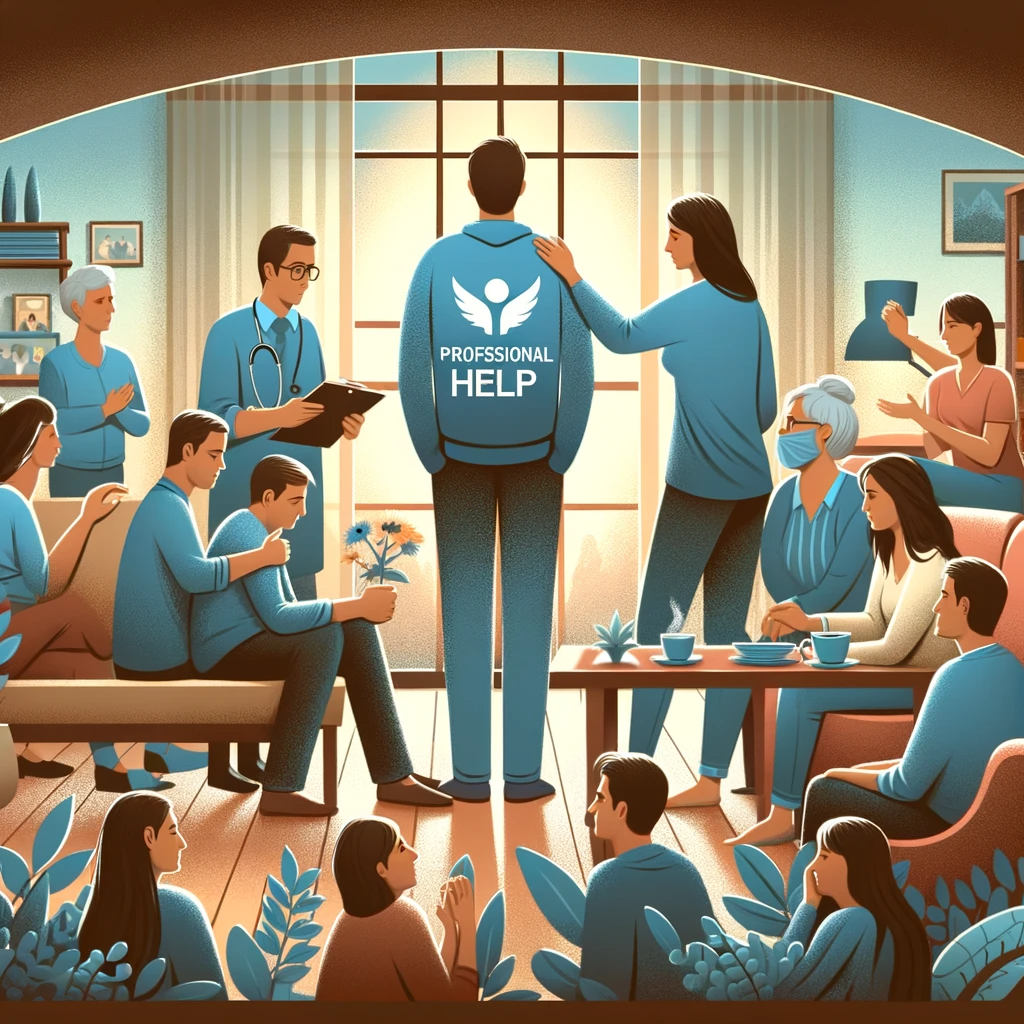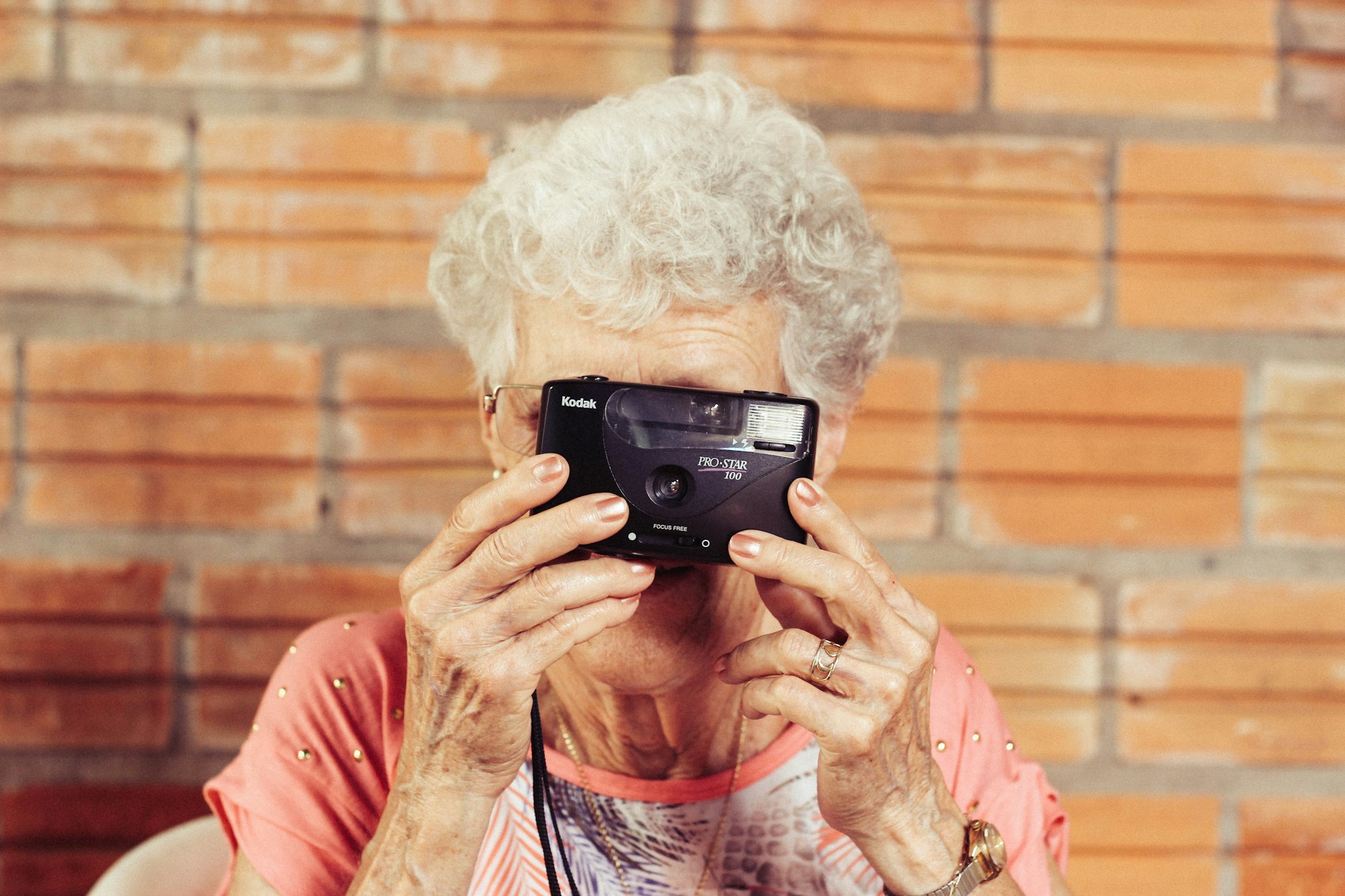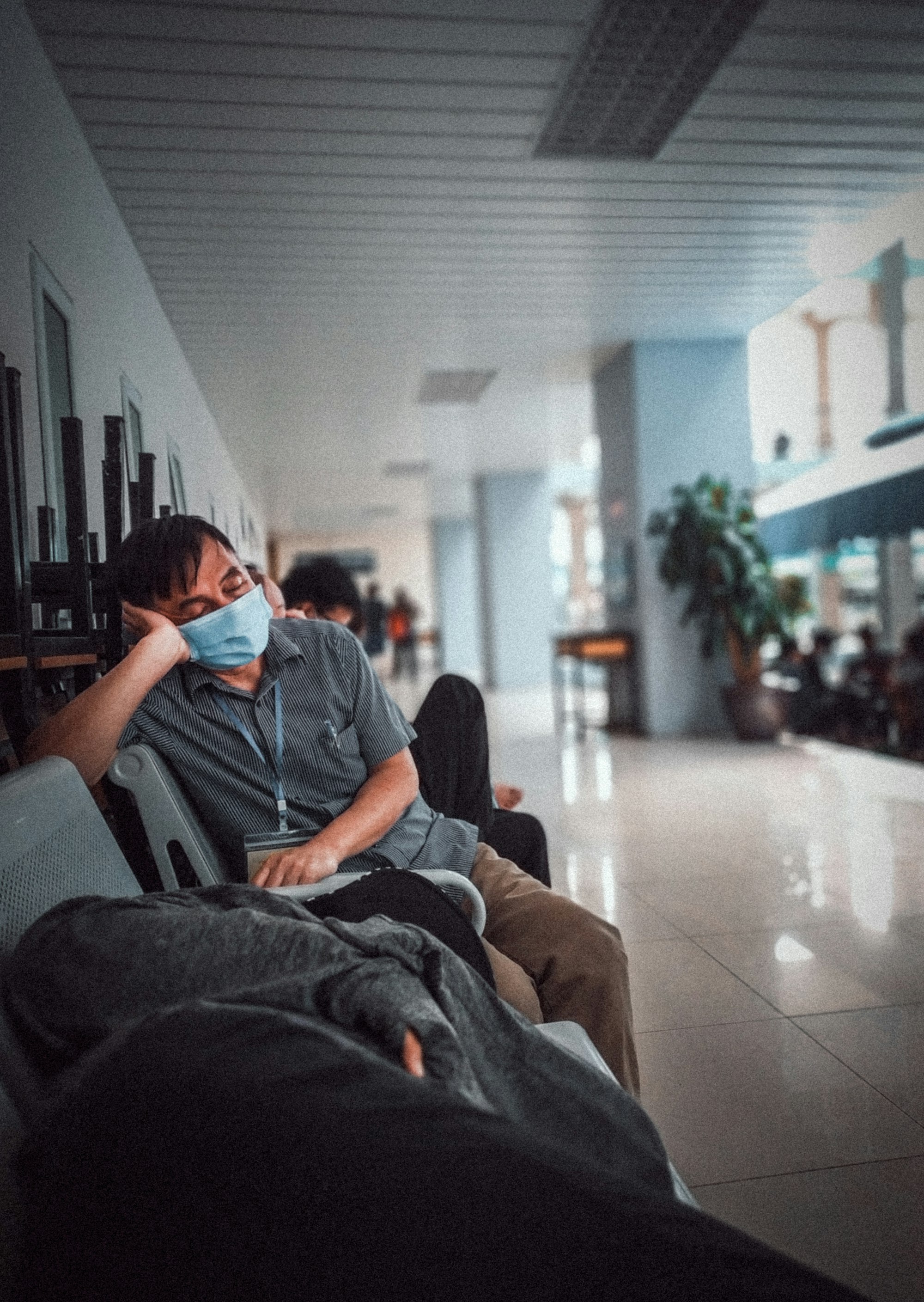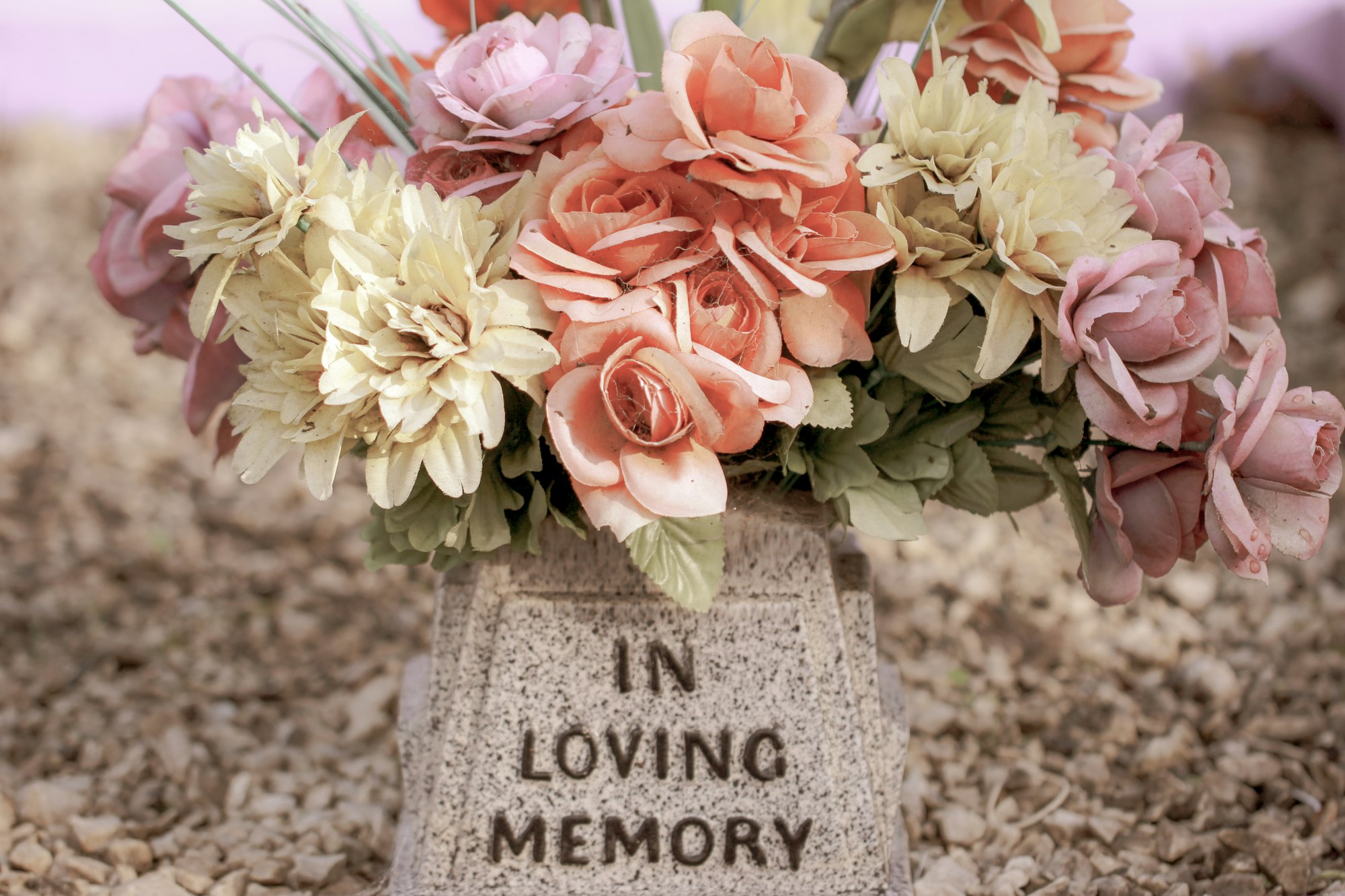Acceptance of Death of a Loved One: Embracing Life's Journey
Explore the grieving process, offering insights into coping with loss and moving forward. It addresses the emotional and physical aspects of grief, the importance of support, and the journey towards accepting and honoring a loved one's memory.

Understanding Grief: A Natural Response to Loss
The story of Jo, a widow who navigated the complexities of grief after losing her husband Johnny to cancer, is a powerful illustration of the grieving process. Grief is a natural response to the death of a loved one, encompassing a range of emotions from profound sadness to, sometimes, relief or guilt. Jo's experience highlights that there is no right or wrong way to grieve.
The Stages of Grief: A Fluid Experience
Grief often unfolds in stages, although not everyone will experience every stage, and they may not occur in a linear fashion. These stages include denial, anger, bargaining, depression, and acceptance. Jo’s experience encapsulates these stages as she grapples with the reality of losing Johnny, transitions through intense emotions, and eventually finds a way to accept his death.
Complicated Grief: When Mourning Becomes Overwhelming
In some cases, individuals may experience complicated grief, where the intensity of grief does not ease with time, severely impacting their daily life and mental health. This form of grief may require the intervention of a licensed mental health professional or grief counseling. These experienced therapists can offer evidence-based treatments to help individuals navigate through this challenging phase.
Physical and Emotional Symptoms of Grieving
Grieving can manifest through a range of physical and emotional symptoms. Jo’s story reflects this, as she likely experienced profound sadness, a sense of feeling lost, and physical symptoms affecting her health. Grief can disrupt one's daily routine, sleep patterns, and even physical health.

The Importance of Social Support and Professional Help
Social support plays a critical role in the grieving process. Spending time with friends and family members, sharing memories of the loved one, and feeling connected can significantly aid in coping with the loss. For some, professional help becomes crucial, especially when grief interferes with their ability to lead their own life.
Accepting Death and Moving Forward
Accepting the death of a loved one is a pivotal part of the healing process. It involves acknowledging the reality of the loss, experiencing the pain of grief, and adjusting to life without the deceased. Over time, as Jo’s story illustrates, this can lead to redefining one's relationship with the deceased, keeping their memory alive in healthy ways, and finding new meaning and purpose in life.
Grief Over Time: Lingering Feelings and Memories
Grief does not have an expiration date. Even years or decades later, certain occasions like anniversaries or holidays can reignite feelings of sadness or loss. However, with time, these feelings often become less intense, allowing space for more positive memories and emotions.
Embracing Grief as Part of Life
Jo's journey through grief underscores that there is no right or wrong way to grieve. Each person’s experience is unique, and it’s important to allow oneself to feel a range of emotions. By acknowledging grief as a natural and necessary response to loss, individuals can find healthy ways to cope, maintain their physical and mental health, and eventually find a path forward, continuing to cherish their loved one's memory while embracing the hope and possibilities that life still offers.
The Role of Social Support and Professional Help
As Jo's journey demonstrates, social support from friends, family, and community plays a crucial role in coping with loss. After Johnny's death, Jo found solace in volunteering and engaging with her community, which helped her process her grief. Additionally, seeking professional help from licensed mental health professionals can be vital in managing complicated grief.

The Healing Process: Accepting Death and Moving Forward
Acceptance of death is a crucial step in the healing process. Jo's ability to create a new life for herself, while still honoring Johnny's memory, exemplifies this acceptance. It’s important to remember that healing does not mean forgetting; it's about finding healthy ways to remember the deceased and feel connected to them.
Coping with Anniversaries and Special Occasions
Anniversaries and special occasions can bring back intense emotions. Jo’s story on her 72nd wedding anniversary reflects how such occasions can be both a time of sadness and a celebration of positive memories. Finding support from friends or family members is essential during these times.
Grief Counseling and Evidence-Based Treatments
For those struggling with grief, seeking grief counseling can be beneficial. Experienced therapists can provide evidence-based treatments that help individuals process their emotions and cope in healthy ways. Jo’s story underscores the importance of addressing grief before it leads to more severe conditions like depression.

Life After Caregiving: Finding Hope and Meaning
After Johnny's death, Jo’s transition from a caregiver to living her own life again highlights the challenges and opportunities that come with major life changes. Her journey of moving forward, spending time with loved ones, and engaging in meaningful activities shows that life can still be full of hope and worth living, even after a major loss.
Embracing the Full Spectrum of Emotions in Grief
Jo's story of love, loss, and acceptance serves as a reminder that grief is a deeply personal experience. Embracing the full spectrum of emotions, from sadness and anger to hope and joy, is essential in the journey towards healing. Accepting the death of a loved one is a challenging yet integral part of life, leading to personal growth and a renewed sense of purpose.
I want to share Jo and Johnny's story
72 Years of Love and Moving Forward
72 years ago today… Johnny was a young soldier on weekend leave. And Jo, a lovely young woman who had traveled by train from another state, stood before an altar in a church in Mobile, AL. That day they exchanged wedding vows. They promised to love each other “for better or for worse, in sickness and in health” – and they did.
40 years later, Johnny was diagnosed with cancer that already spread. For five months, he lingered on while the cancer ate away at his body, spreading to his lymph nodes and then to his brain. For five months, his wife and daughters took care of him, loved him, and did everything they could for him.
When he died, Jo picked up the pieces of her life, and moved on, making a new life for herself. She was still a vibrant, lovely woman. Not so young any more, in her early 60s, but still able to turn heads and charm everyone who met her. There were predictions that she would love again. Maybe marry again. That she would not live out the rest of her years alone. Though several men tried to catch her interest, Jo always said no one else she met ever measured up to her Johnny.
The new life Jo created involved a lot of volunteering… with her church, with fraternal organizations, with the local food bank. Everyone loved her smile, her warmth, her caring demeanor.
As she grew older and began to have her own health issues, she tried to bear them all with grace and dignity. Even the things that seemed designed to rob a person of any semblance of dignity.
Jo spent her last three years in an assisted living facility. She quickly became a staff favorite. She always had a smile and a kind word for everyone. She glad to see anyone who visited. Her room was a peaceful little oasis. Many of the aides would stop by each day just to have a quick hello and enjoy the serenity of her presence.
At the end of her life, Jo had to bear the pain of severe injuries from a fall. She developed a debilitating neurological disease. She was crippled by a stroke. She still tried to show her love for her beloved family, for her friends, and for the loving God she worshipped.
One night, Jo and her hospice aide sang hymns together. The family had just returned from dinner to the sounds of … “Old One Hundred”: “Praise God from whom all blessings flow. Praise him all creatures here below. Praise him above the Heavenly host. Praise Father, Son and Holy Ghost.”
Before Jo died, her daughter watched as she began slightly lifting her head. She began making little “kissing” motions. As if greeting someone, several some ones, in fact.
Then Jo raised both arms up, curving them into an embrace with a presence only she could see. Considering that her last fall had left her with a broken collarbone and 10 fractured ribs… this was pretty remarkable. Whether there was anything or anyone there is something no one in this life can know.
The nurse and Jo’s family remain convinced to this day that… she was embracing her beloved Johnny, who had come to welcome and guide her onward. They had a love to last through the ages.
FAQ: Post-Acceptance of Death of a Loved One – Embracing Life’s Journey
What does "acceptance of death" mean?
Acceptance of death refers to coming to terms with the reality of a loved one’s passing and integrating that loss into your life journey.
Is there a right or wrong way to accept death?
No, each person grieves and accepts death in their own way. There is no "right" timeline or method.
How can I support a family member in accepting the death of a loved one?
Offer emotional support, be present, and allow them to grieve in their own way, providing a listening ear without judgment.
What is the difference between accepting death and fearing it?
Acceptance means understanding and integrating death as part of life, whereas fear involves anxiety or dread about death and dying.
How can spiritual beliefs help in accepting a loved one’s death?
Many find comfort in their spiritual beliefs, which may provide meaning, peace, or hope in the grieving process.
How do I find peace after losing a loved one to a terminal illness?
Accepting the inevitability of death and reflecting on your loved one’s life and legacy can help foster peace.
Can self-compassion help during the grieving process?
Yes, being kind to yourself, recognizing your feelings, and practicing self-care are crucial during grief.
How do I cope with the physical absence of a loved one?
Focus on cherishing their memory, continue honoring their life, and create new routines to manage their physical absence.
Can support groups aid in the acceptance of a loved one’s death?
Yes, support groups offer a community of people going through similar experiences, providing mutual understanding and help.
Is it normal to reflect on my own mortality after a loved one’s death?
Yes, the death of a loved one often leads to contemplation about one’s own mortality, which is a natural part of grieving.
How can I handle feelings of denial when grieving?
Denial is a common initial reaction. Over time, allowing yourself to process emotions can lead to acceptance.
What is a “good death,” and how can it help in accepting loss?
A "good death" refers to one that aligns with a person’s wishes, offering peace and closure, which can make acceptance easier.
Can spending time with family and friends help with death acceptance?
Yes, surrounding yourself with supportive loved ones can provide comfort and help with the acceptance process.
How do I begin to accept the reality of a loved one’s death?
Take time to reflect on your feelings, acknowledge the pain, and slowly integrate this loss into your understanding of life.
How does the grieving process affect death acceptance?
Grieving is a journey of emotions. Accepting death is often the final stage, following denial, anger, bargaining, and sadness.
Is it helpful to talk about my loved one who died?
Yes, sharing memories and feelings can help in processing grief and accepting their death.
What is the role of professional help in the grieving process?
Therapists and counselors can provide guidance, emotional support, and coping strategies during difficult times of loss.
How can I embrace life after the loss of a loved one?
Focus on self-care, personal growth, and finding new perspectives on life while honoring your loved one’s memory.
What are some conscious choices I can make after accepting a loved one’s death?
You can consciously choose to focus on healing, finding joy again, and living with the legacy of your loved one in your heart.
Can the acceptance of death bring a new sense of purpose?
Yes, many people find new meaning in life after accepting death, which can bring growth and a renewed focus on life’s journey.
You might also like this article:














